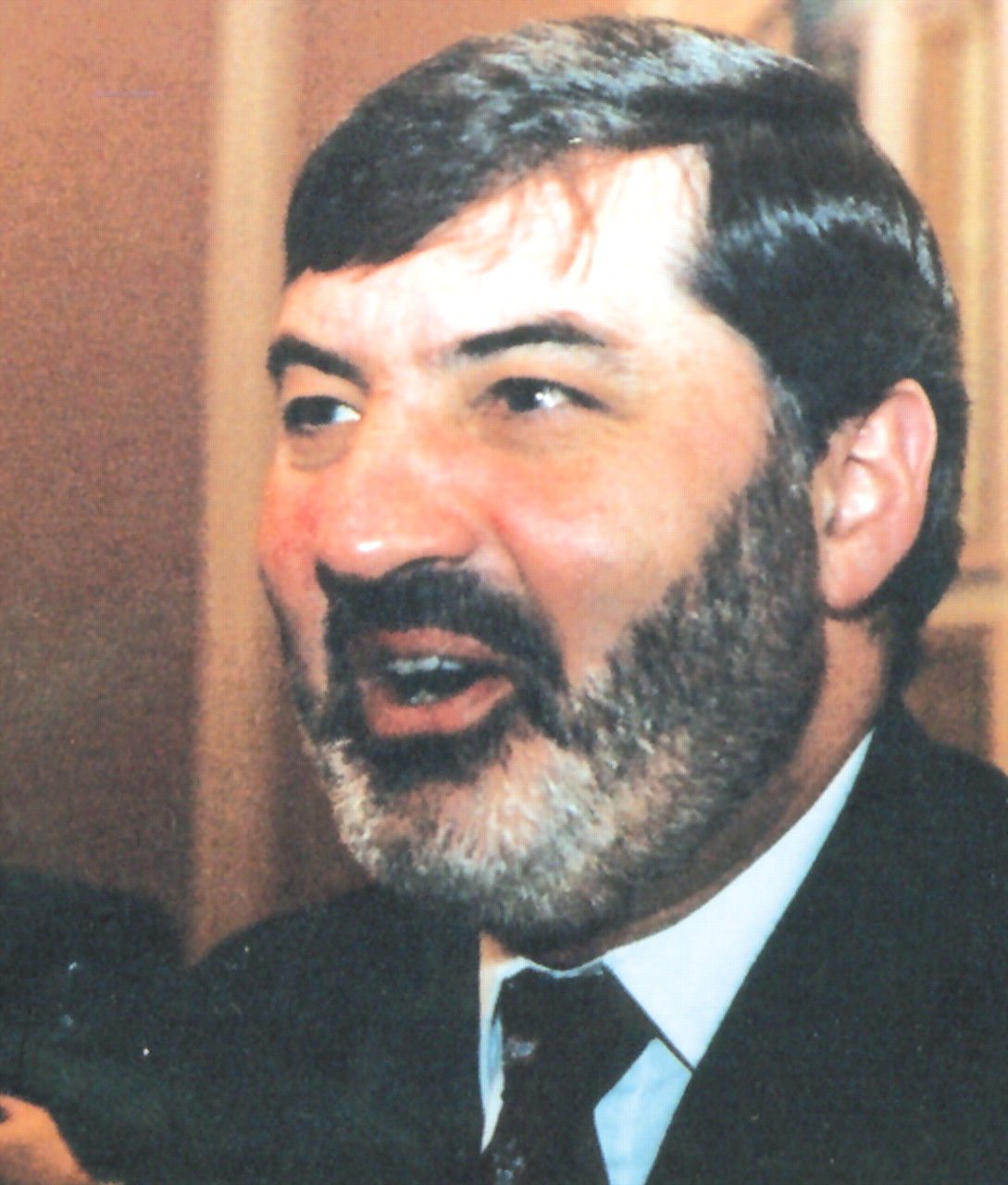With his penetrating black eyes, aquiline nose, and salt-and-pepper beard, John Alderdice, M.D., may well evoke the public’s image of a psychiatrist-psychoanalyst—intellectual and a touch flamboyant. In fact, he is a psychiatrist-psychoanalyst, but more—a Lord, speaker of the Northern Ireland Assembly, and one of the key negotiators of the historic 1998 Belfast Agreement that brought some semblance of peace to Northern Ireland Catholics and Protestants, who have been engaging in open and often deadly conflict for more than 30 years.
The American Psychoanalytic Association invited Alderdice to speak at its January meeting in New York City about the Northern Ireland Protestant-Catholic situation and his role in it.
Animosity between the Catholics and the Protestants in Northern Ireland is nothing new, Alderdice reported at the American Psychoanalytic meeting. The current “troubles” hark back to conflicts at least 800 years old and more recently to events in 1921 and 1949. They have less to do with religion than with nationalist loyalties. In 1921, as part of a peace agreement ending guerilla-style conflict against the British, the new “Free State” was created. All Irish counties were to belong to the free state with the proviso that heavily Protestant Northern Ireland could opt out; subsequently six counties in the north of Ireland chose to come under British rule. In 1949, the Free State became the Republic of Ireland, further cementing the partition.
One of the reasons that tensions between Catholics and Protestants in Northern Ireland resurfaced during the 1960s, he said, is that civil rights were making “a robust appearance on the world stage.” In 1968 Northern Ireland’s Catholics organized a large demonstration protesting discrimination by Northern Ireland’s Protestants in voting rights, housing, and employment. A police crackdown followed, sparking months of violence. Alderdice, who was a teen at this time, said that he found the violence “exciting as well as frightening,” at least until it impacted members of his own family.
During the 1970s and 1980s, Alderdice became a physician, then a psychiatrist, and then a psychoanalyst. Also, during these two decades, strife between Protestants and Catholics in Northern Ireland escalated, and Alderdice got involved in Northern Ireland politics in hopes of finding a solution to the violence. In 1978, at age 23, Alderdice, a Protestant, joined a political party that had both Protestants and Catholics in it because he thought that he could have more impact that way. It was the Alliance Party. In 1987, at age 32, he was elected leader of this party.
By 1989, some 2,700 people had died in Northern Ireland because of the 20 years of warring between Protestants and Catholics. There was tremendous anxiety among politicians in Northern Ireland that their communities would be destroyed by the conflict, Alderdice said. So his political party and other political parties in Northern Ireland started holding talks in hopes of resolving the conflict. The talks took place regularly over the next decade and ultimately involved not just the various Northern Ireland political parties, but the governments of the Republic of Ireland and the United Kingdom; George Mitchell, a retired U.S. senator, was sent by President Bill Clinton to assist the peace process.
Finally a peace agreement—the Belfast Agreement—was signed on Good Friday 1998. The agreement gave Catholics a greater voice in Northern Ireland while meeting Protestant demands that Northern Ireland remain part of Britain. Alderdice was one of the signatories of the agreement, and he and the other signatories received the 1998 John F. Kennedy Profiles in Courage Award for their achievement. Also, after the agreement was signed, a new Northern Ireland Assembly was formed, and Alderdice was appointed speaker.
What are some of the things that Alderdice and the others involved in the decade-long talks did to achieve the Belfast Agreement?
“The most important thing was creating a culture where people who hated each other and who despised each other could work together,” he said. And that meant creating a milieu where people felt respected, not humiliated. People will never forgive you if you humiliate them, he explained.
Another thing that made the talks work, he said, was inclusiveness. It took some years, but it got to a point where “all strands of the community” were represented in the talks.
Still a third thing that made the talks succeed, he said, was creating a sense of collegiality—in other words, a sense that “we’re all in this mess together, and if we don’t find a solution, our children and grandchildren are going to suffer.”
A fourth element that led to a resolution, he pointed out, was getting politicians to think about healing broken relationships rather than “horse trading.”
So where do things stand now as far as peace in Northern Ireland is concerned? In September 2003, Alderdice was appointed to the Independent Monitoring Commission established by the governments of Ireland and the United Kingdom to bring about full implementation of the Belfast Agreement. In Alderdice’s opinion, Sinn Fein—the political arm of the Catholic Irish Republican Army (IRA)—now has so much political clout in Northern Ireland that it is unlikely that the IRA will resort to violence again.
Still, there are anxieties, he said. Sinn Fein fears that the Independent Monitoring Commission “is going to push them back into the darkness,” and the Protestant Unionists are afraid that control of Northern Ireland is slipping away from them. Thus the challenge, he asserted, is maintaining an environment in which people on opposite sides can reflect and talk with each other directly.
Of course, the relationship between Catholics and Protestants in Northern Ireland may continue to break down, he admitted. “But if you keep lighting a candle rather than cursing the darkness, you can make a contribution,” he concluded.
Stuart Twemlow, M.D., a professor of psychiatry at the Menninger Clinic in Houston, heard Alderdice’s talk and spoke with him privately afterward. “He [Alderdice] instills hope because he seems to understand complex situations without oversimplifying them,” Twemlow told Psychiatric News.
Alderdice was introduced at the American Psychoanalytic meeting by Nadia Ramzy, Ph.D., a psychoanalyst from St. Louis, Mo. Alderdice, she told her fellow analysts, is a dramatic example of how “we analysts are moving more and more into the world to help solve daunting social problems.” ▪

